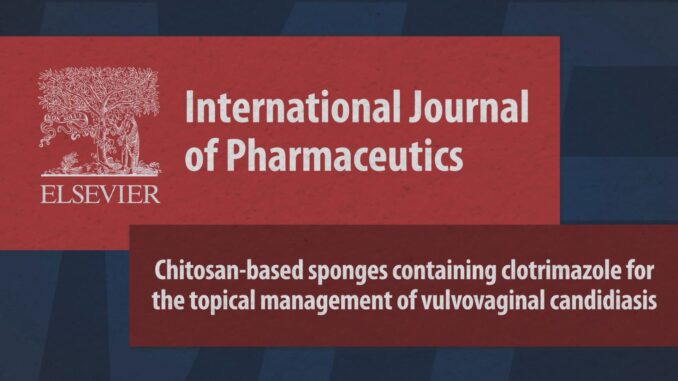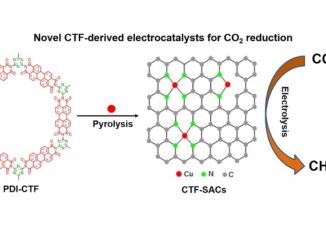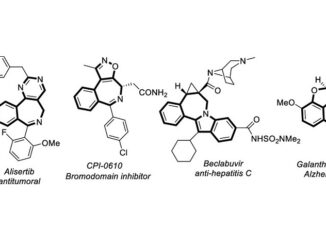
Chitosan-based sponges containing clotrimazole for the topical management of vulvovaginal candidiasis
Abstract: Vulvovaginal candidiasis (VVC) persists as a worrying women’s healthcare issue, often relying on suboptimal therapeutics. Novel intravaginal dosage forms focusing on improving patient acceptability and featuring improved biopharmaceutical properties could be interesting alternatives to available antifungal products. Different formulations of sponges based on chitosan (Ch), with or without crosslinking and co-formulated with poly(N-vinylcaprolactam) (PNVCL), were produced for the topical administration of clotrimazole (CTZ) and further tested for physicochemical properties, drug release, cytotoxicity and antifungal activity. Results showed that high amounts of CTZ (roughly 30–50 %) could be incorporated into sponges obtained by using a simple freeze-drying methodology. Cross-linking of Ch with ammonia affected the morphology and mechanical features of sponges and shifted the release profile from sustained (around 20 % and 60 % drug released after 4 h and 24 h, respectively) to fast-releasing (over 90 % at 4 h). The combination of PNVCL with non-crosslinked Ch also allowed tuning drug release, namely by increasing the initial amount of CTZ released in simulated vaginal fluid (roughly 40 % after 4 h), as compared to sponges featuring only non-crosslinked Ch. All formulations displayed low toxicity to cell lines derived from the female genital tract, with viability values kept above 70 % after 24 h incubation with sponge extracts. These also allowed maintaining the rapid onset of the antifungal effects of CTZ at minimum inhibitory concentrations ranging from 0.5 to 16 μg/mL for a panel of six different Candida spp. strains. Overall, proposed sponge formulations appear to be promising alternatives for the safe and effective management of VVC.
Author(s): Fiama Martins; Daniella L. Morgado; Bruno Sarmento; Emerson R. de Camargo; José das Neves
International Journal of Pharmaceutics
Published: 25 November 2023, Volume 647, 123508
DOI: https://doi.org/10.1016/j.ijpharm.2023.123508
CDMF
The CDMF, hosted at the Federal University of São Carlos (UFSCar), is one of the Research, Innovation and Dissemination Centers (RIDC) supported by the São Paulo State Research Support Foundation (Fapesp), and also receives investment from the National Council Scientific and Technological Development (CNPq), from the National Institute of Science and Technology of Materials in Nanotechnology (INCTMN).




